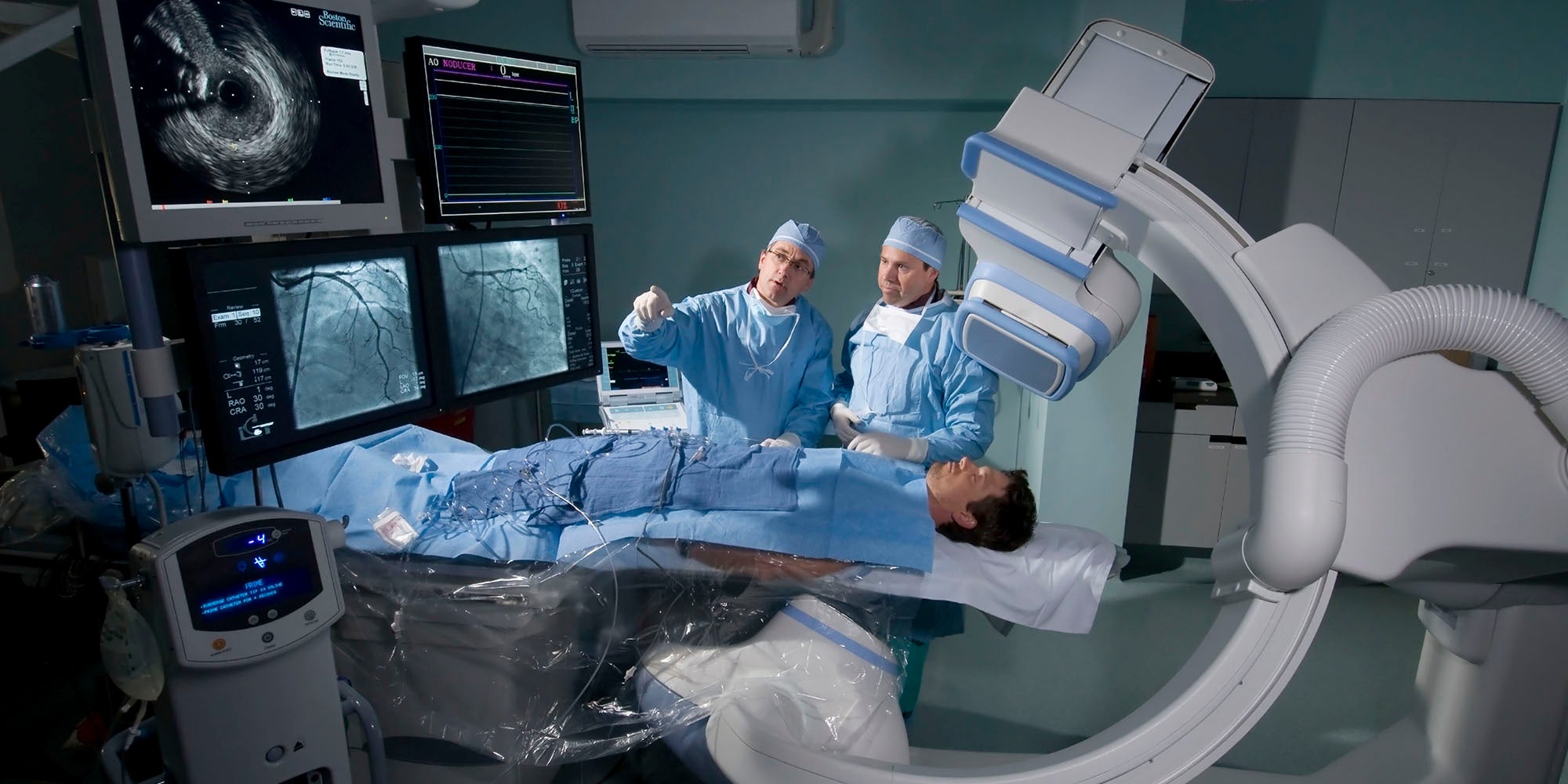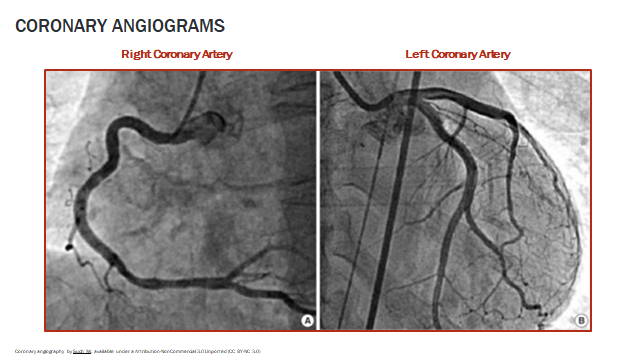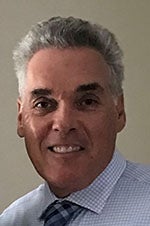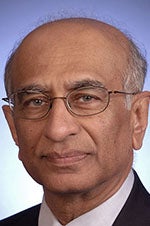Invasive Cardiovascular Technology

Ready to Apply for the Invasive Cardiovascular Technologist Program?
Applications are accepted February 1st through May 1st
Application Information Apply Here
The School of Invasive Cardiovascular Technology program is a one-year, full-time, highly specialized certificate program. Graduates will be educationally prepared and clinically competent to assist with the procedures performed in today's catheterization laboratory (cath lab) setting. Students will learn the basic fundamentals of heart and vascular function and physiology and then concentrate on core, didactic, lab, and clinical cardiovascular courses. Clinical practicum occurs at Saint Francis Hospital, and at affiliated hospitals throughout Connecticut.
Upon graduation, the invasive technologist will be trained to work with cardiologists, cardiovascular nurses, and other highly skilled healthcare specialists to perform sophisticated tests in order to diagnose and quantify cardiac disorders. Testing includes the evaluation of coronary artery disease, cardiac valve disease, and disorders of the heart’s electrical conduction system.
The Invasive Cardiovascular Technology program is accredited by the Commission on Accreditation of Allied Health Education Programs (CAAHEP). The Joint Review Committee on Education in Cardiovascular Technology (JRCCVT) and CAAHEP recognizes the program’s substantial compliance with the nationally established accreditation Standards.
About Invasive Cardiovascular Testing
Program Description

This 52-week program comprises an initial five weeks of dedicated classroom instruction, which includes basic concepts of heart and vascular function and physiology. Additionally, the student will learn the basic fundamentals of the sterile environment prior to attending the catheterization laboratory and their clinical rotation. Students will then concentrate on core, didactic, lab, and clinical cardiovascular courses throughout the remainder of the program. The remaining weeks consist of four days of training and instruction at the clinical site and one day of classroom didactic and lab instruction.
Clinical internships are completed at several community and major teaching hospitals within a 50-mile radius of Saint Francis Hospital. Students gain hands-on experience while working with prominent diagnostic interventional cardiologists. This variety helps develop the essential skills necessary to become a registered cardiovascular invasive specialist and working professional. Students are given many opportunities to observe diagnostic and interventional catheterization laboratories in action such as diagnostic angiography studies and percutaneous coronary intervention (PCI) procedures.
Invasive Cardiovascular Schedule
Prerequisites & Admission
1A:Any 2-year AMA Allied Health degree, such as but not limited to: Radiologic Technology, Physical Therapy, Respiratory Therapy, Cardiopulmonary Technology, Occupational Therapy, and Registered Nursing
1B: Any bachelor’s degree in health science
1C: Non health science bachelor's degree with the following co-requisites:
- Human Anatomy and Physiology I and II (8 College Credits)
- Medical Terminology
- Note: A letter grade of C or higher is required.
1D: Paramedic graduate of a degree-granting, accredited paramedic training program
- Supporting Documentation: Official educational transcripts AND employment verification letter
1E: Enrolled in accredited University/College pathway to Cardiovascular Technology, including program guidelines/standards, qualified applicants must have a minimum of 100 course credit hours, and must have completion the following courses:
- Human Anatomy and Physiology I and II
- Medical Terminology
- Note: A letter grade of C or higher is required
- Supporting Documentation: Official educational transcripts AND Official Letter from Dean of the Schools.
1F: Foreign and Domestic M.D.s and D.O.s are also eligible to apply
- Supporting Documentation: Official educational transcripts AND/OR medical license credential
Note: International transcripts need to be verified by a credentialing company such as World Education Services (WES)
Application Process
Application Timeline:
- Applications accepted – Feb 1st through May 1st
- On-campus Interviews – May
- Notification of acceptance – July
- Orientation – August
- Matriculation – First week of October
- Graduation – End of September
Materials needed for application:
- $50 application fee (non-refundable)
- Resume/CV
- Two letters of reference (1 work, 1 personal)
- Educational transcripts (must be official)
- Essay (see application information)
- Application Information
Tuition and Fees
- $17,000 - Includes tuition, books, lab and graduation fees, national registry fees.
- Includes ACLS test registrations and fees
- Includes one year student rate membership to the Alliance of Cardiovascular Professionals
Statistics
Invasive Cardiovascular Technology
Saint Francis Hospital and Medical Center, Invasive Cardiovascular Technology Program, in accordance with CAAHEP Accreditation Standards, offers the three year (2023+2022+2021) average outcomes for the graduates of the Invasive Cardiovascular Technology Program:
- 100% Employed
- (Positive Placement, employed, continuing their education, or serving in the military)
- 86% Retention
- 100% National Registry Exam, Registered Invasive Cardiovascular Specialist (RCIS), (CCI)
Questions?
For more information about The School of Invasive Cardiovascular Technology, please contact Kevin Early, BS, RT, RCIS at kevin.early@trinityhealthofne.org, (860) 714-5344.
Faculty and Staff

Kevin Early, BS, RT, RCIS
Program Director/Clinical Coordinator

Murthappa Prakash, MD
Medical Director
